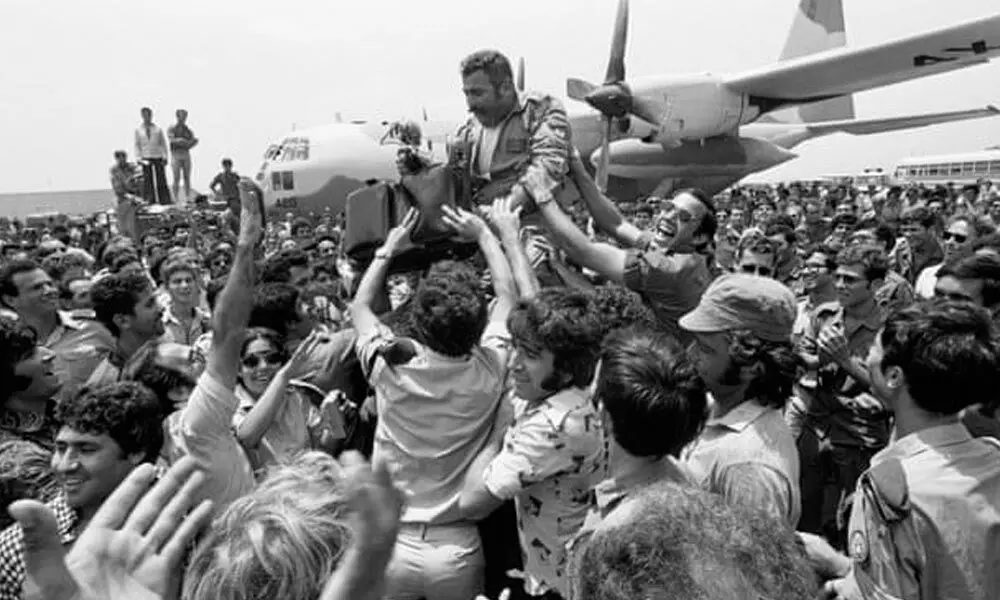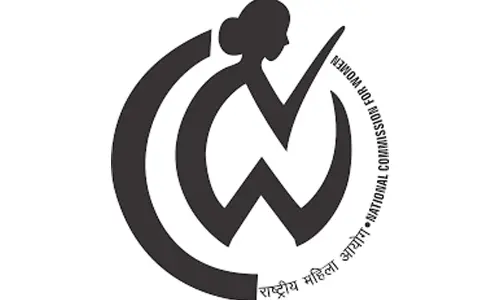A few lessons from Entebbe terror play

A few lessons from Entebbe terror play
Terror is a commonly used instrument to achieve political goals
Terror is a commonly used instrument to achieve political goals. Similarly, methods of meeting terror and denying the objectives sought to be achieved by terror groups are important material for the study of the play of politics. The raid on Entebbe airport in Kampala in Uganda on the intervening night of 3 and 4 July 1976 is a classic and dramatic example of how terror was used and how it was joined by the opposing party. 44 years after the incident, by hindsight, we can analyse the operation and refresh lessons learnt long ago with a new perspective. The lessons of Entebbe raid are still a guide to a country like India which faces terror acts on a regular basis.
On Sunday, 27 June,1976, Air France flight No 139 from Ben Gurion International Airport in Tel Aviv, Israel, scheduled to fly to Paris was hijacked by two German and two Palestinian hijackers after taking off from a stopover in Athens, Greece. The hijackers were from the Popular Front for the Liberation of Palestine (PFLP). The architect of the strategy to hijack planes of western countries was Dr Wadie Haddad, the deputy of Dr George Habash who formed the PFLP. A large number out of the 228 passengers in the plane were Jews. After hijacking, the plane was taken to the Entebbe airport in Kampala, Uganda. Three more terrorists joined the hijackers at the airport. The hijackers demand was to release 53 'freedom fighters' imprisoned in five countries majority of whom were Palestinians held up in Israeli prisons. Unable to accede to the demand of the hijackers, Israel launched a military operation on the airport in Kampala. All the hijackers lost their lives in the operation and the hostages were freed. The military operation was code-named as 'Operation Thunderbolt '
'Group think' is a term coined by social psychologist Irving L Janus to refer to a practice in which people strive to achieve consensus setting aside their personal views on an issue. This usually happens in a situation where there is an authoritative figure who dominates the group. When options were considered by the Israeli Cabinet to resolve the hijacking issue, the almost unanimous opinion was to negotiate and release prisoners from Israeli jails as demanded by the hijackers. Decision-makers in Israeli government were keenly aware of the ruthlessness of the hijackers and the loss of life in earlier hijackings. Initially they were not prepared to risk the lives of hostages and ruled out a military operation as not feasible. The Cabinet, the Army chief and the Opposition leaders were all for a negotiated settlement. The group was led by Prime Minister Yitzak Rabin. The only dissenting voice was Shimon Peres, the Defence Minister. Shimon Peres was not a favourite of the Prime Minister in the Cabinet and he did not see eye to eye with the PM on many issues. Ultimately it was the Defence Minister who corralled the group to change the group think and opt for a military solution. Had the group think prevailed, the consequences for Israel would have been catastrophic in terms of loss of prestige in international community and in giving further impetus to terror activities world-wide.
On the sixth day of the hijack drama, Dora Block, an elderly Israeli woman and one of the hostages got a food particle stuck in her throat while eating lunch in the holdup area of the hostages. The hijackers allowed her to be taken to a hospital for a check-up. A doctor in the hospital using an instrument removed the food particle from her throat. After her brief stay in the hospital, Dora Block was supposed to be sent back to the detention area of the hostages. Kenyan Health Minister, Henry Kyemba, after visiting Dora Block in the hospital, decided to keep her in the hospital till the hostages are released so that she could have a better stay in the hospital compared to the cramped and unhygienic conditions in the hold-up area. For Dora Block fate was unkind. It is believed that Idi Amin, the Ugandan dictator got her killed in revenge for the Ugandan soldiers killed in the raid.
The plan of the Israeli raiding party was to conduct the operation in total silence and surprise so as not to give reaction time to the hijackers to harm the hostages. The Ugandan dictator, Idi Amin, who was helping the hijackers used to come now and then to the airport in a black Mercedes car to talk to the hijackers and the hostages on the progress of negotiations. The planners of the raid thought that using a black Mercedes car and dressing up the advance raiding party to resemble Idi Amin and his companions, they could fool the Ugandan soldiers and head straight to the hold-up area without arousing suspicion. But things turned out differently. As the black Mercedes car of the advance raiding party approached the road that led to the old terminal, the place where the hostages were kept, one of the armed Ugandan sentry who was 100 yards in advance of the control tower, lifted his rifle and called out 'advance'. It could have been a routine challenge and the soldier might not have fired. But the commanding officer of the advance raiding party, Yoni Netanyahu, thought otherwise and fired at the sentry. Soon, there was a burst of gunfire and sound. The element of surprise was gone and the hijackers were alerted.
The operation would not have been successful but for the cooperation of the hijackers.
In the eyes of the world and Israel, the operation was a great success. Only two Israeli soldiers including the Commanding Officer, Yoni Netanyahu were killed. All the seven hijackers were also killed. All the hostages except three were rescued. Conducting a military operation 2200 miles away from their homeland in a clockwork precision with minimal loss of life was an event unmatched by any military exploits in contemporary military history anywhere in the world. But the story had a twist. As said earlier, the element of surprise was gone by the exchange of fire in the initial moments of the operation. With the time given, the hijackers could have killed the hostages. They chose not to kill but opted to fight the raiding party. In the gunfight they perished but left the hostages to live.
For the entire eight days during the saga of the hijack, the attention of the world was riveted on the incident and on the Palestine issue. It was a mega publicity campaign worth millions and millions of dollars for the cause of Palestine. Winston Churchill, late Prime Minister of the UK observed that history is written by victors. The story of Entebbe is always a narration about the bravery of Israeli soldiers and how they pulled off an impossible hostages' rescue. The vanquished hijackers too have an interesting untold story to tell. How they smuggled firearms and explosives into the airplane at Athens airport without the security noticing them? How did they persuade the Ugandan President to allow them to run their operation from the Ugandan soil? Why did they choose not to harm the hostages when they had a chance? The answers to the questions above could have made an interesting story.
Taking a cue from the operation at Entebbe, many countries prone to terrorist attacks set up special military units. The German special unit GSG-9 inspired by Operation Thunderbolt stormed hijacked Lufthansa Boeing 737 at Mogadishu airport in 1977 and rescued all hostages. Three years after this incident, Britain's special unit SAS stormed the Iranian embassy in London, rescued all but one hostage by killing five terrorists. Our country has its own special operations force called National Security Guard (NSG). The NSG was used to neutralise terrorist attack on Mumbai in November 2008.The lasting impact of the raid was the realisation that terror need not stun into submission and that it can be fought and won.
The one issue which is yet to be resolved regarding terror attacks is how to minimise the effort and cost in dealing with them. The sponsor of terror employs a small group and gives them minimal equipment. The opposing party, usually a nation, has to deploy a large group of its armed forces with a high cost. In Kashmir today, a small group of terrorists sneaks into our borders and we have to use hundreds of our soldiers to silence them. The war on terror will be won when we learn how to equal or slash the cost of an operation with that of the sponsor of a terror attack.
(The writer is a retired IAS officer of Telangana cadre)















